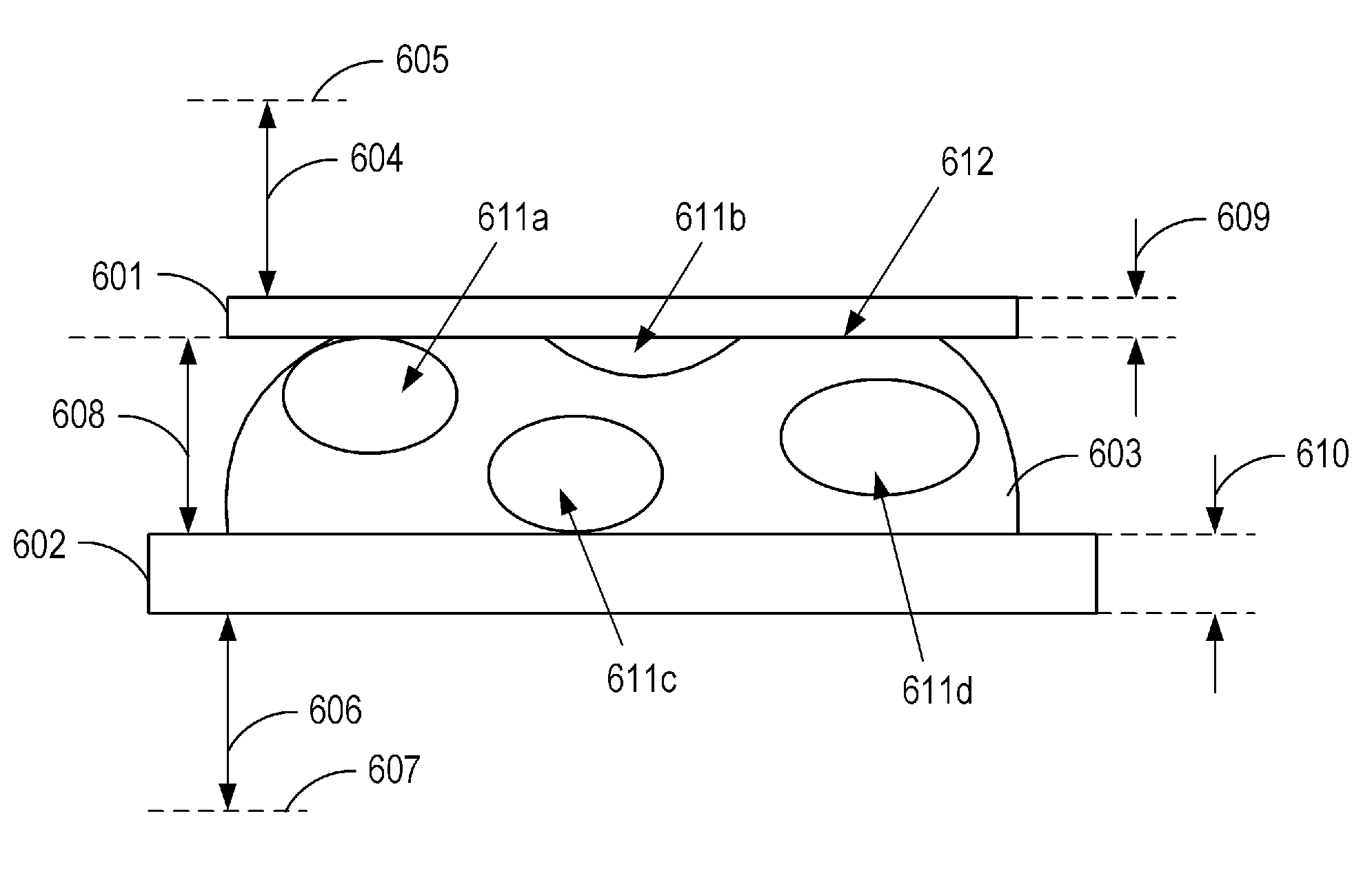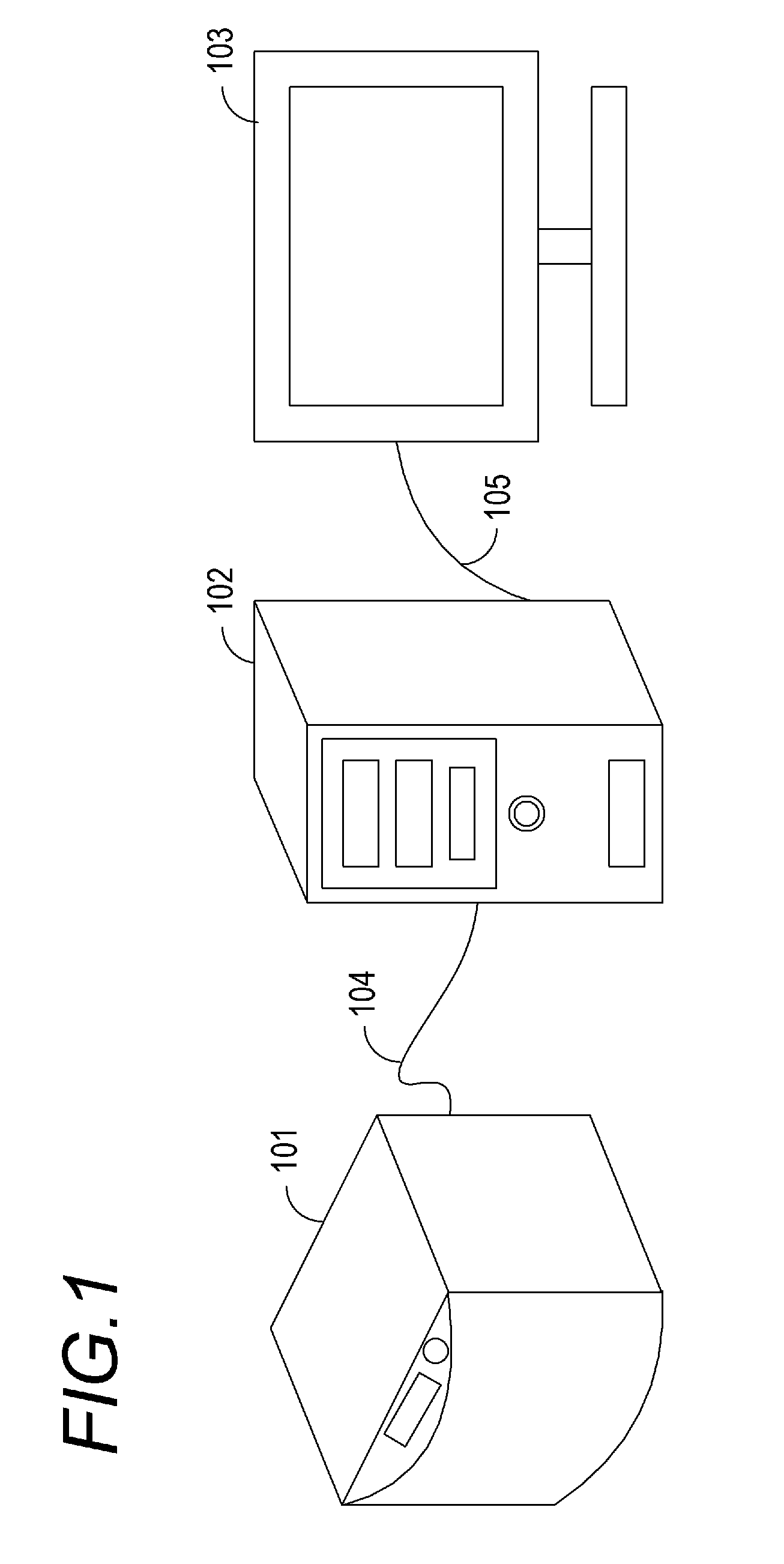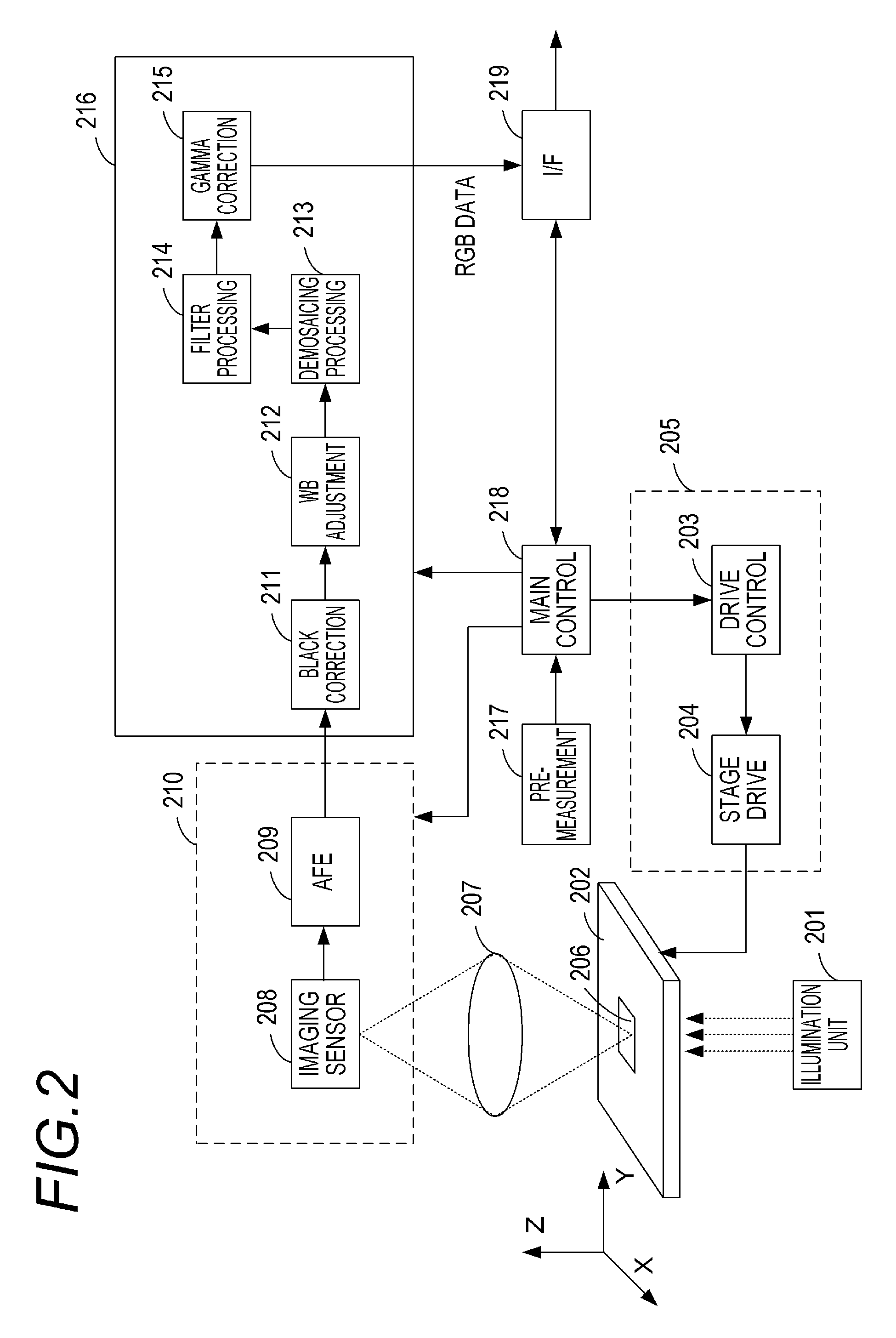Focus stacking image processing apparatus, imaging system, and image processing system
a technology of image processing apparatus and image processing system, which is applied in the field of image processing apparatus, imaging system, image processing system, etc., can solve the problems of reduced image recognition, reduced image analysis reliability, and difficulty in observing an entire specimen from a single two-dimensional imag
- Summary
- Abstract
- Description
- Claims
- Application Information
AI Technical Summary
Benefits of technology
Problems solved by technology
Method used
Image
Examples
first embodiment
[0028]FIG. 1 is an overall view showing a layout of apparatuses in an imaging system according to a first embodiment of the invention.
[0029]The imaging system according to the first embodiment is composed of an imaging apparatus (microscope apparatus) 101, an image processing apparatus 102, and a display device 103, and is a system with a function to acquire and display a two-dimensional image of a specimen (a test sample) as an object to be imaged. The imaging apparatus 101 and the image processing apparatus 102 are connected to each other with a dedicated or general-purpose I / F cable 104. The image processing apparatus 102 and the display device 103 are connected to each other with a general-purpose I / F cable 105.
[0030]The imaging apparatus 101 is a virtual slide apparatus having a function of acquiring a plurality of two-dimensional images at different focal positions in an optical axis direction and outputting digital images. The acquisition of the two-dimensional images is done...
second embodiment
[0129]An image processing system according to a second embodiment of the present invention will now be described using the drawings.
[0130]In the first embodiment, an example in which the layer images used to generate the observation image and the analysis image are obtained as required by the imaging apparatus was described. In the second embodiment, an example in which the layer images are obtained in advance and the image processing apparatus obtains required layer images from an image server during image generation will be described. The second embodiment also differs from the first embodiment in that pre-processing relating to image stacking is varied between a cytological diagnosis and a tissue diagnosis. The following description focuses on these differences.
[0131]FIG. 9 is an overall view showing a layout of apparatuses in the image processing system according to the second embodiment.
[0132]The image processing system according to this embodiment includes an image server 1201...
third embodiment
[0143]A third embodiment of the present invention will now be described. In the above embodiments, focus stacking is performed using a select and merge method, but in the third embodiment, focus stacking is implemented using a spatial frequency filtering method in which original images are added together in a spatial frequency region.
[0144]FIG. 11 is a flowchart showing a flow of focus stacking processing. FIG. 11 shows in detail the content of Steps S805 and S810 in FIG. 6 of the first embodiment. In the first embodiment, divided images are selected and merged by comparing contrast values. In this embodiment, processing (also referred to as depth recovery) for enlarging the depth of field by performing image stacking and recovery in a frequency region using a plurality of images will be described.
[0145]In Step S1401, the image processing apparatus 102 obtains a plurality of layer images to be subjected to depth recovery processing.
[0146]In Step S1402, the image processing apparatus...
PUM
 Login to View More
Login to View More Abstract
Description
Claims
Application Information
 Login to View More
Login to View More - R&D
- Intellectual Property
- Life Sciences
- Materials
- Tech Scout
- Unparalleled Data Quality
- Higher Quality Content
- 60% Fewer Hallucinations
Browse by: Latest US Patents, China's latest patents, Technical Efficacy Thesaurus, Application Domain, Technology Topic, Popular Technical Reports.
© 2025 PatSnap. All rights reserved.Legal|Privacy policy|Modern Slavery Act Transparency Statement|Sitemap|About US| Contact US: help@patsnap.com



